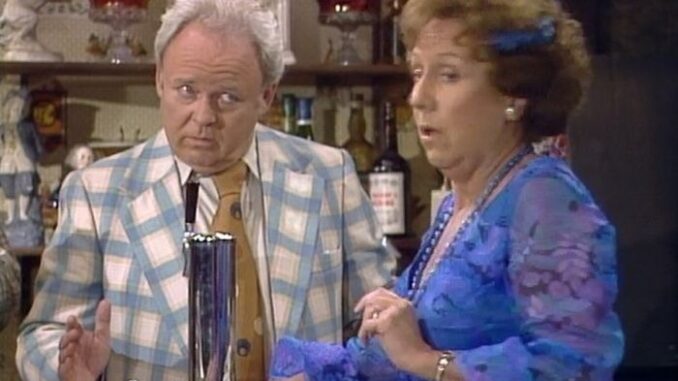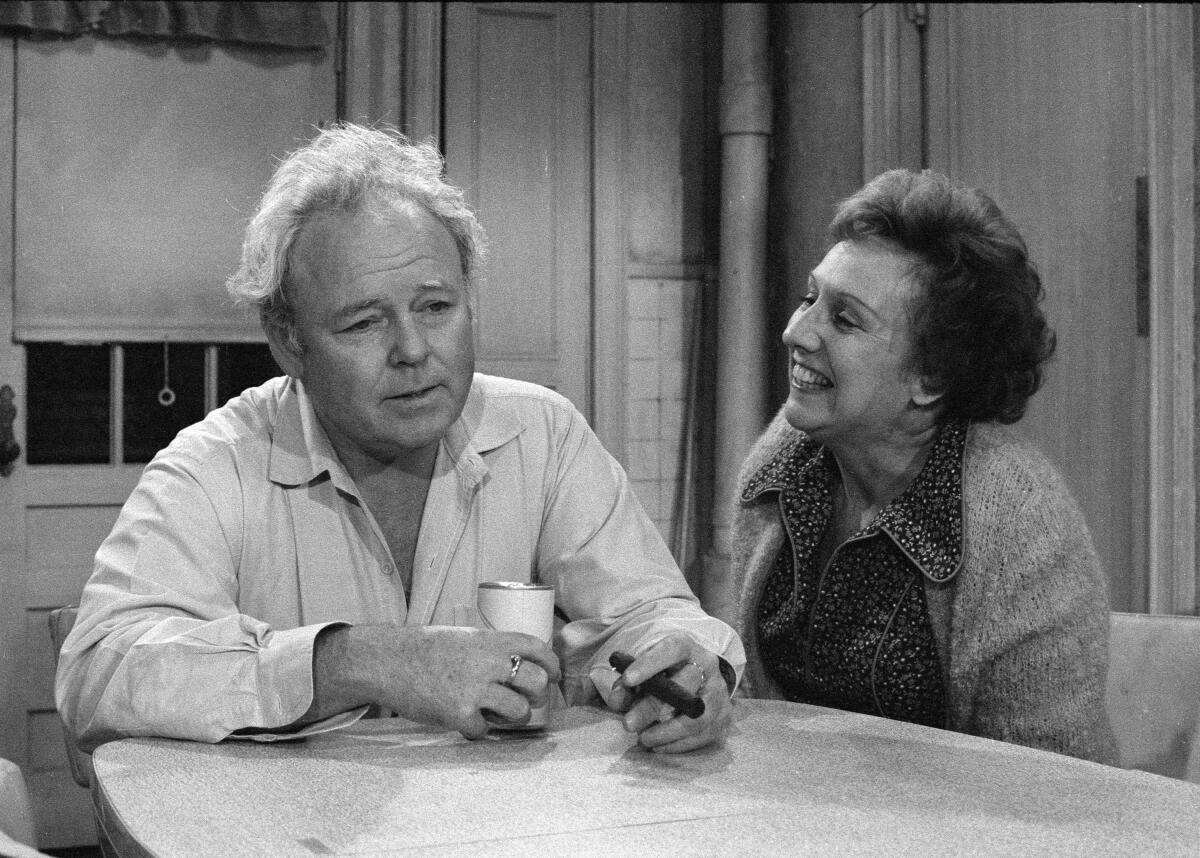
We’ve all got a dingbat in our family, and if you don’t think you do, I’ve got bad news: You’re the dingbat.
In Jean Stapleton’s case, the dingbat she knew and loved was an aunt in her family that lent itself to a very important character on television.
In an interview with The Republic, Stapleton revealed that while much of her creation of the character of Edith Bunker was organic, there were aspects of her personality that were shared with her aunt. Stapleton stated, “The character of Edith isn’t completely modeled after anyone. But there are many facets of a very dear aunt – a beloved dingbat.” Of her aunt, Stapleton said, “She would have loved the show.”
Again, the rest of Edith Bunker is all Jean Stapleton. In an interview with The Commercial Appeal, she explained, “That’s what character acting is all about. I became involved in the character and project the image I’ve summed up in my mind. That dictates Edith’s vocal quality, appearance, walk, expressions — everything.”

While All in the Family is a comedy and much of its material finds its laughter in its most outrageous moments, Stapleton felt that the show depicted a level of realism that would actually serve to be educational to its viewers. She said, “His [Archie’s] bigotry is not lovable, it’s laughable. But Archie is lovable…By laughing at bigotry, we’re not exonerating it, we’re focusing on it.”
Such an education would be imparted to viewers like Stapleton’s two children. The actor stated, “Boy, will they know an Archie when they meet one.”
So acutely aware of the show’s pursuits, Stapleton confessed in an interview with The Sunday News that All in the Family was a collaborative effort between the actors and writers, and the lines between them often became blurred. She said, “We’re a team. The writers are willing to yield. They bend to us, realizing we’ve been at it so long.”

By united forces and putting their heads together, the entire cast and crew of All in the Family was able to take charge under one common goal, which Stapleton gracefully explained during her interview with The Commercial Appeal. She said, “We don’t try to preach, or change people or stop bigotry. Our purpose is to be humorous, and we hope that comedy’s the best way to get a subtle message across.”

